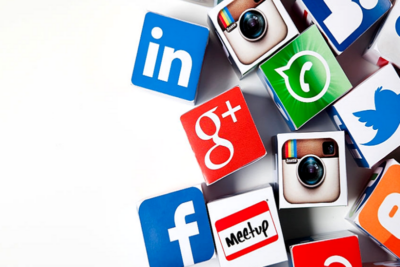Digital marketing has made it possible for mental health professionals to connect with prospective patients at a much lower cost than ever before. Instead of paying for television advertisements or sending out press releases and hoping someone takes notice, you can connect directly with potential patients and educate them about your services.
If you don’t have a robust digital marketing strategy in place, now’s the time to try some new marketing techniques. Follow these eight tips from our digital marketing agency for mental health professionals that will boost your mental health services to members of your target audience.

8 Recommended Mental Health Marketing Strategies
1. Blogging
Blog content is a great way for mental health professionals to position themselves as experts and educate potential clients on a wide range of mental health topics. Blogging is considered one of the necessary tips on digital marketing for mental health professionals that you need to follow. For best results, each blog post should provide an in-depth overview of the selected topic and include a call to action (CTA) at the end. Effective calls to action convince the people in your target audience to take the desired action, such as booking an appointment or downloading a free e-book from your website.
Once you’re blogging consistently, you can try other forms of content marketing, such as posting videos on YouTube or offering e-books for potential patients to download from your website. Content marketing is the practice of developing and distributing valuable content to members of your target audience. Articles, videos and other types of content educate audience members on mental illness, mental health treatment options and other relevant topics, attracting more attention to your practice. Content also helps establish authority in a specific niche, making it an essential component of your marketing strategy.
2. Social Media Marketing
 Many mental health professionals avoid social media marketing because they think social media platforms are for sharing memes and staying in touch with friends from high school or college. The truth is that social networks are a great place to educate people about mental health issues and promote your mental health services. If you’re not already using social media marketing as part of your overall marketing strategy, take time to set up profiles on Facebook, YouTube and other networks.
Many mental health professionals avoid social media marketing because they think social media platforms are for sharing memes and staying in touch with friends from high school or college. The truth is that social networks are a great place to educate people about mental health issues and promote your mental health services. If you’re not already using social media marketing as part of your overall marketing strategy, take time to set up profiles on Facebook, YouTube and other networks.
3. Digital Networking
One of the most effective mental health marketing strategies is to network with doctors, physician assistants, nurse practitioners and other professionals in the health care field. Strong professional relationships can help you bring in more clients and showcase your expertise all over the World Wide Web. To get started, offer to write a guest post for a doctor’s blog or agree to participate in a Zoom panel discussion about mental health.
4. Search Engine Optimization
 It’s not enough to start a website for your mental health practice. You need to make sure potential clients can find your site when they need information about mental health topics. As a mental health professional, it’s much easier to attract new patients when your website shows up at the top of the search results for relevant keywords.
It’s not enough to start a website for your mental health practice. You need to make sure potential clients can find your site when they need information about mental health topics. As a mental health professional, it’s much easier to attract new patients when your website shows up at the top of the search results for relevant keywords.
One of the best ways to reach the top of the search engines is to publish high-quality content on mental health conditions, treatments and other related topics. Before you start writing, conduct keyword research to determine which search terms are most likely to attract organic search engine traffic. It’s also helpful to work with a marketing agency if you want to run paid search campaigns while you wait for your organic SEO efforts to pay off.
5. Email Marketing
Email marketing is one of the most effective forms of mental health marketing, as it allows mental health professionals to communicate directly with potential clients. In fact, when compared with other digital marketing strategies, email marketing produces $36 in revenue for every $1 spent. This type of digital marketing is also cost-effective, as you can send an email to thousands of people without incurring any printing or mailing costs.
If you have a limited marketing budget, try sending a monthly email newsletter with articles written to establish your authority in the behavioral health industry. You can also send email updates if you introduce a new service, hire new mental health specialists for your practice or have any other news to share with your patient base. If you need help with the technical aspects of email marketing, partner with Lead to Recovery to take advantage of our mental health marketing services.
6. Mobile Website Optimization
 Another important aspect of mental health marketing is mobile website optimization, which ensures your website works just as well on mobile devices as it does on desktop and laptop computers. People experiencing mental health concerns may use smartphones or tablets to search for therapists or learn more about their symptoms, so it’s important for your website to look and function correctly on a wide range of devices. Mobile optimization also makes it easier for potential patients to connect with you via their favorite social media channels.
Another important aspect of mental health marketing is mobile website optimization, which ensures your website works just as well on mobile devices as it does on desktop and laptop computers. People experiencing mental health concerns may use smartphones or tablets to search for therapists or learn more about their symptoms, so it’s important for your website to look and function correctly on a wide range of devices. Mobile optimization also makes it easier for potential patients to connect with you via their favorite social media channels.
7. Flexible Appointment Options
At the height of the COVID-19 pandemic, hospitals and other medical facilities made increased mental health awareness a priority. Patients and employees alike struggled with isolation and loneliness caused by COVID-19 lockdowns, prompting many professionals in the mental health field to take to the internet to educate people about mental health issues.
Now that patients are used to seeing health care professionals via Zoom and other technologies, it’s important for behavioral health specialists to offer flexible appointment options.
Offering telehealth visits is a great way to grow your patient base and make it easier to connect patients with online tools that can help them better manage their mental health.
8. Localized Marketing
Digital marketing has leveled the playing field for independently owned mental health practices, but it’s important not to forget about local marketing. If you plan to see patients in your office, you may want to focus on attracting local clients from one or two neighborhoods instead of marketing to an entire city or county. You can do this by handing out health pamphlets, attending local health fairs or offering free seminars to help prospective patients learn how to improve their mental health.

Expert Tips on Digital Marketing for Mental Health Professionals
If you don’t have much experience with digital marketing, it’s important to partner with an agency that is considered the number one treatment center marketing and has experienced marketers on staff to guide you every step of the way. At Lead to Recovery, we focus exclusively on behavioral health marketing, so our marketing experts know exactly how to draw positive attention to your practice and help you get more patients. To learn more about how we can help you grow your business, call (855) 876-7238 to book a discovery call.

Content written by rehab marketing expert Matthew Travers
Co-Founder
Matthew Travers is a seasoned Digital Marketing Professional with a distinguished career spanning 21 years, dedicating the last decade to the specialized fields of addiction treatment and mental health marketing. He brings a deep passion for creating powerful marketing strategies, with a distinctive proficiency in SEO and conversion rate optimization, aligning business objectives with innovative solutions to drive success.

